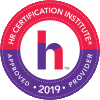Total Rewards Strategies to Address the Gender Pay Gap
The gender pay gap has become a chief compensation issue for many organizations in recent years. Despite the fact that most business leaders realize they need to confront any pay disparities head-on, current research suggests that the gender pay gap isn’t closing, and in fact, might actually be widening. To end the gender pay gap once and for all, forward-thinking organizations are reevaluating their total rewards strategies to make measurable changes that ensure pay equity for everyone.
Which strategies, in particular, are most effective for tackling the gender pay gap? Our upcoming webinar will reveal these insights, along with other valuable tips about gender and pay. To give your organization the context it needs to make effective total rewards decisions that stifle any risks of pay inequality, webinar presenter Michael F. Maciekowich, National Director for Astron Solutions, will draw on his four decades of experience in compensation and incentive programs. Join Michael as he reveals what companies must do to close the pay gap, and why most traditional approaches fall short.
Attendees will learn:
- The history of the gender pay gap, its causes, and the future outlook
- Why and how traditional total reward strategies fail to address the gender pay gap
- An in-depth look at successful total reward strategies to promote pay equality
- How these strategies can shape a successful future for employees and businesses
 About the Presenter
About the Presenter
Michael F. Maciekowich is a National Director for Astron Solutions. His areas of expertise include the development, design, and implementation of executive, physician & employee base pay systems, short- & long-term incentive programs, sales incentive programs, and performance management systems in all industries. Michael has over 40 years of consulting and industry compensation experience. Prior to Astron, Michael worked for numerous consulting firms such as The Hay Group, Towers Watson, Adams, Nash & Haskell, and the Omni Group. Michael received bachelor’s degrees in political science and philosophy from Loyola University of Chicago and a master’s degree in industrial relations from the Quinlan School of Business of Loyola University of Chicago.


